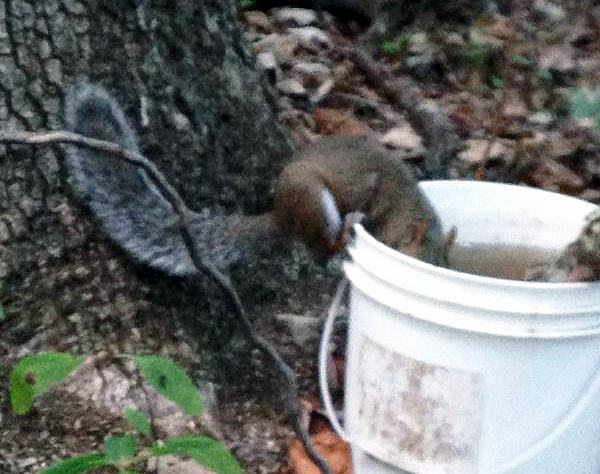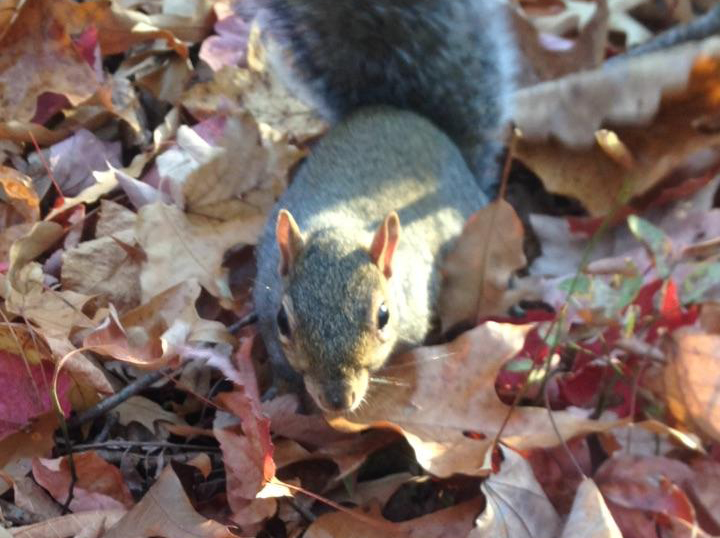
A bucket of water is quick and easy.
This year’s drought has caused many water sources to dry up, leaving wildlife looking for new ones. If you decide to leave some water out, make sure it is weighted at the bottom (a large stone will do the trick) and has a limb or branch in it. Placing these water sources at the base of trees or beside large shrubs allows animals to have plenty of hiding places and escape routes while they’re trying to get a drink.

Consider leaving leaf litter!
Another wildlife-friendly fall practice is letting the leaves stay where they fall, instead of raking them up and sending them to the landfill.
Here are a few of the many benefits:
- Leaves add organic matter back to the soil.
- They provide shelter and trap moisture for insects and amphibians that depend on leaf litter to survive the winter and reproduce.
- Leaves also provide an ideal habitat for the microorganisms that are essential to healthy soil.
- Birds and mammals rely on leaves for their nesting material, and having a warm, well-insulated nest is critical for surviving winter.
- Fallen leaves provide temporary, miniature pools; squirrels, chipmunks and songbirds can grab a drink from a perfectly curled leaf after a rain event.
- Leaves offer hiding places from both predators and the cool, dry air of fall.
Keep the leaves and your grass, too…
Many folks worry that an excess amount of leaves will smother their grass, leaving unsightly dead patches in their lawn. A thick layer of leaves can quickly be reduced by mowing them into smaller pieces. You don’t need a fancy mower to do this, simply mow over the leaves a couple times. This is enough to break down larger leaves to a fine, effective mulch that will decompose faster, adding organic matter back to the lawn.
If you’re considering raking up the leaves to keep your yard “tidy”, consider raking them into your compost pile or garden beds, where they can serve as a “natural mulch” by retaining moisture and releasing nutrients back into the soil as they decompose.
For more information on the benefits of leaf litter, you can visithttp://blog.nwf.org/2013/11/6-excuses-to-avoid-yard-work-this-fall/.

